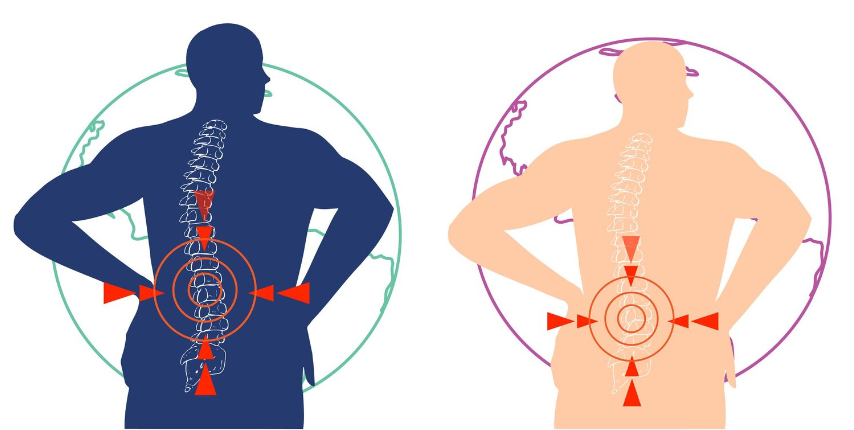
Understanding Common Risk Factors for Developing Back Pain
Back pain is a prevalent issue that can affect anyone, regardless of age or occupation. While it can stem from various causes, certain risk factors can increase your likelihood of developing back pain. Understanding these risk factors is essential for prevention and early intervention.
1. Poor Posture: Maintaining improper posture while sitting, standing, or lifting heavy objects can strain the muscles and ligaments in the back, leading to pain and discomfort.
2. Sedentary Lifestyle: Lack of physical activity weakens the muscles supporting the spine, making you more susceptible to back pain. Sitting for prolonged periods without breaks can exacerbate this risk.
3. Excess Weight: Being overweight or obese puts added stress on the spine and its supporting structures, increasing the risk of developing back pain and related conditions like herniated discs and spinal stenosis.
4. Age: As we age, the spine undergoes natural wear and tear, leading to degenerative changes such as disc degeneration, osteoarthritis, and spinal stenosis, which can contribute to back pain.
5. Occupational Factors: Jobs that involve repetitive lifting, bending, or twisting motions, as well as prolonged periods of sitting or standing, can strain the back and increase the risk of developing pain and discomfort.
6. Psychological Factors: Stress, anxiety, and depression can exacerbate existing back pain or contribute to its development. Psychological factors can lead to muscle tension and poor coping mechanisms, worsening back pain symptoms.
7. Smoking: Smoking restricts blood flow to the spine, reduces the delivery of essential nutrients to spinal tissues, and impairs healing, making smokers more prone to back pain and related conditions.
8. Genetic Factors: Genetics can play a role in predisposing individuals to certain spine conditions, such as scoliosis or ankylosing spondylitis, which can increase the risk of experiencing back pain.
Preventing Back Pain: While some risk factors for back pain may be unavoidable, there are steps you can take to reduce your risk and promote a healthy spine.
To seek medical advice, always consult a Doctor. Here are our recommended experts.Click Here
To read more on Back Pain. Click Here


